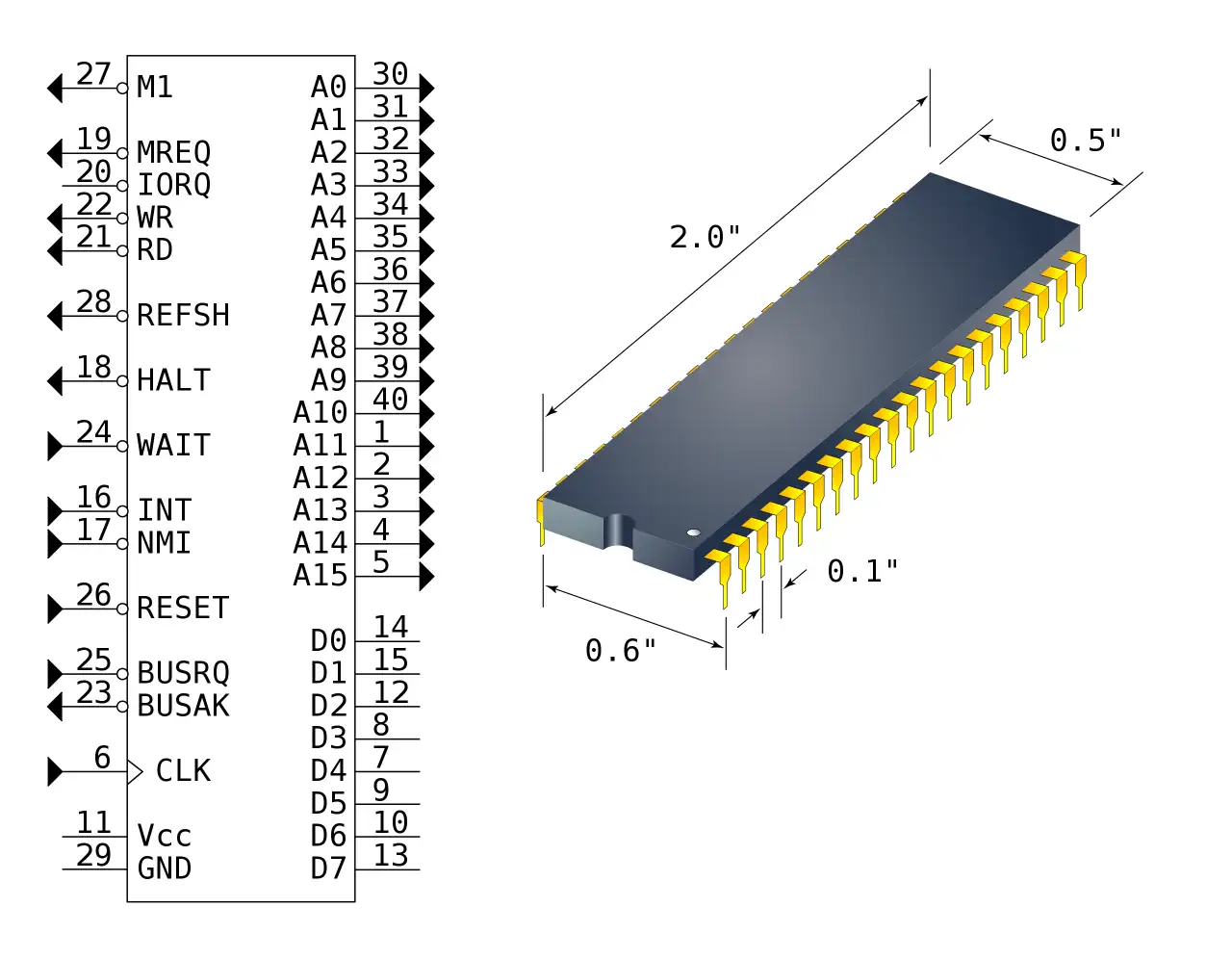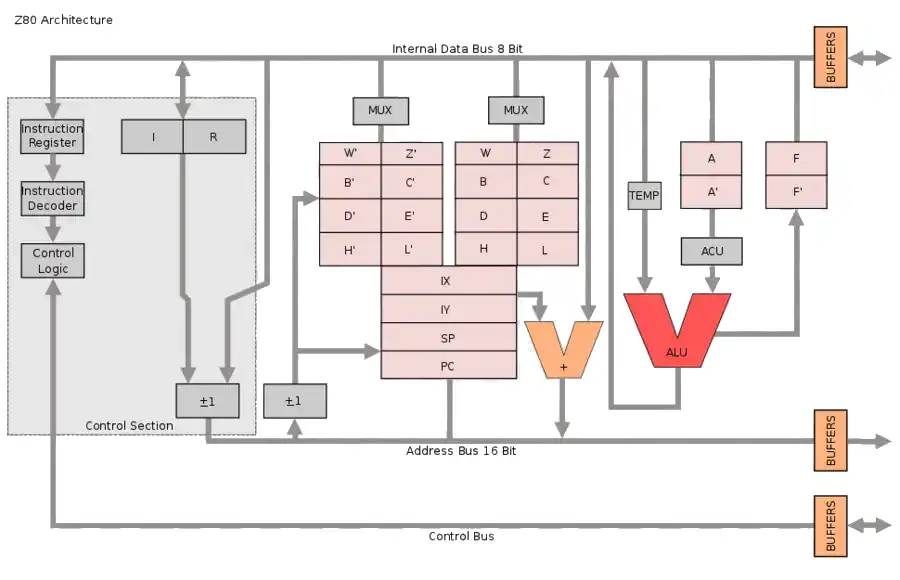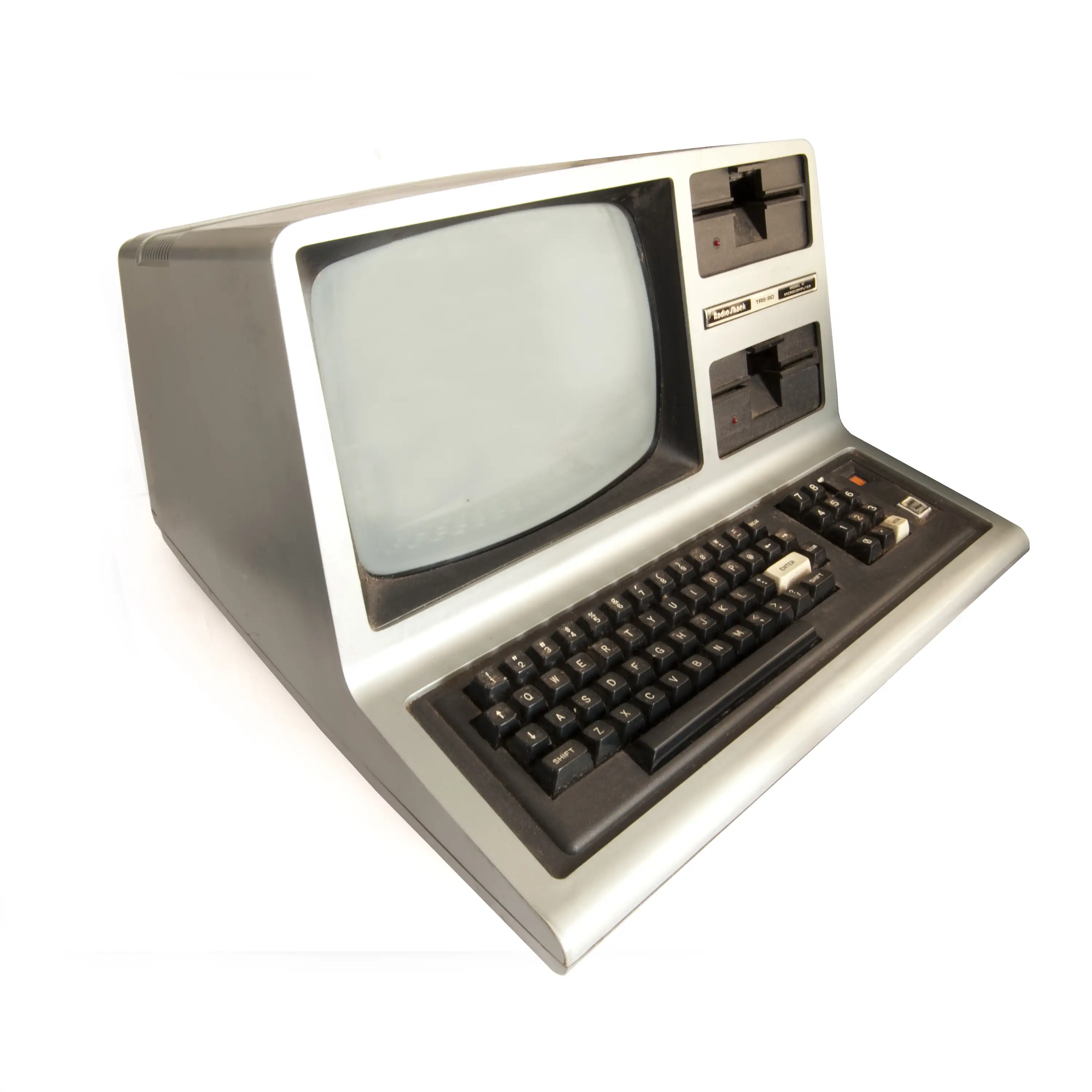TRS-80 Model III
The TRS-80 Model III was introduced in 1980 as a replacement for the Model I and not the Model II, which was part of a separate line of business computers.
The Model III was an all-in-one design. The disk-drives, the keyboard and the monitor were all housed in a single unit. The machine was based on the Z80 processor running at 2MHz. Most Model I software could run without problem on the Model III. The III had a more advanced version of BASIC built in in a 14K ROM. The machine also supported lowercase characters, had two internal bays for disk drives and supported up to 48KByte of RAM.
Tandy released a new version of TRSDOS, version 1.3. This version could run most of the model I software but used a different disk format. Other operating systems such as NEWDOS, DOSPLUS, LDOS and MULTIDOS were all rewritten for use on the Model III. None of these other OSses used the new TRSDOS disk format, but did support many of the 1.3 software calls. That support came at the expense of some Model I compatibility.
Zilog Z80 CPU Family
The Z80 quickly became popular in the personal computer market, with many early personal computers, such as the TRS-80 and Sinclair ZX80, using the Z80 as their central processing unit (CPU). It was also widely used in home computers, such as the MSX range, SORD, and the Amstrad CPC, as well as in many arcade games. Additionally, it was also used in other applications such as industrial control systems, and embedded systems. The Z80 was widely used until the mid-1980s, when it was gradually replaced by newer microprocessors such as the Intel 80286 and the Motorola 68000.
The Z80 microprocessor was developed by Zilog, a company founded by Federico Faggin in 1974. The Z80 was released in July 1976, as a successor to the Intel 8080. It was designed to be fully compatible with the 8080, but also included new features such as an improved instruction set, more powerful interrupts, and a more sophisticated memory management system.
The Z80 quickly became popular in the personal computer market, with many early personal computers, such as the TRS-80 and Sinclair ZX80, using the Z80 as their central processing unit (CPU). It was also widely used in home computers, such as the MSX range, SORD, and the Amstrad CPC, as well as in many arcade games. Additionally, it was also used in other applications such as industrial control systems, and embedded systems. The Z80 was widely used until the mid-1980s, when it was gradually replaced by newer microprocessors such as the Intel 80286 and the Motorola 68000. The design was licensed to Synertek and Mostek as well as the European SGS.
The Z80s instruction set is binary compatible with the Intel 8080, so that 8080 code such as the CP/M Operating System and Intel's PL/M compiler for the 8080 can run unmodified on the Z80. The Z80 had many enhancements over the 8080 such as 16-bit data movement instructions, block copy and block I/O instructions, single bit addressing of all registers, IX/IY offset registers, better interrupt system and a complete duplicate register file for context switching during an interrupt.
Source: WikiPedia

RAM max: 48kB Sound Chip none Sound Sound output through cassette Display 32x16 or 64x16 text modes Best Text 64x16 Best Color none Best Graphics 64x16 text Sprites none System OS TRS-DOS

